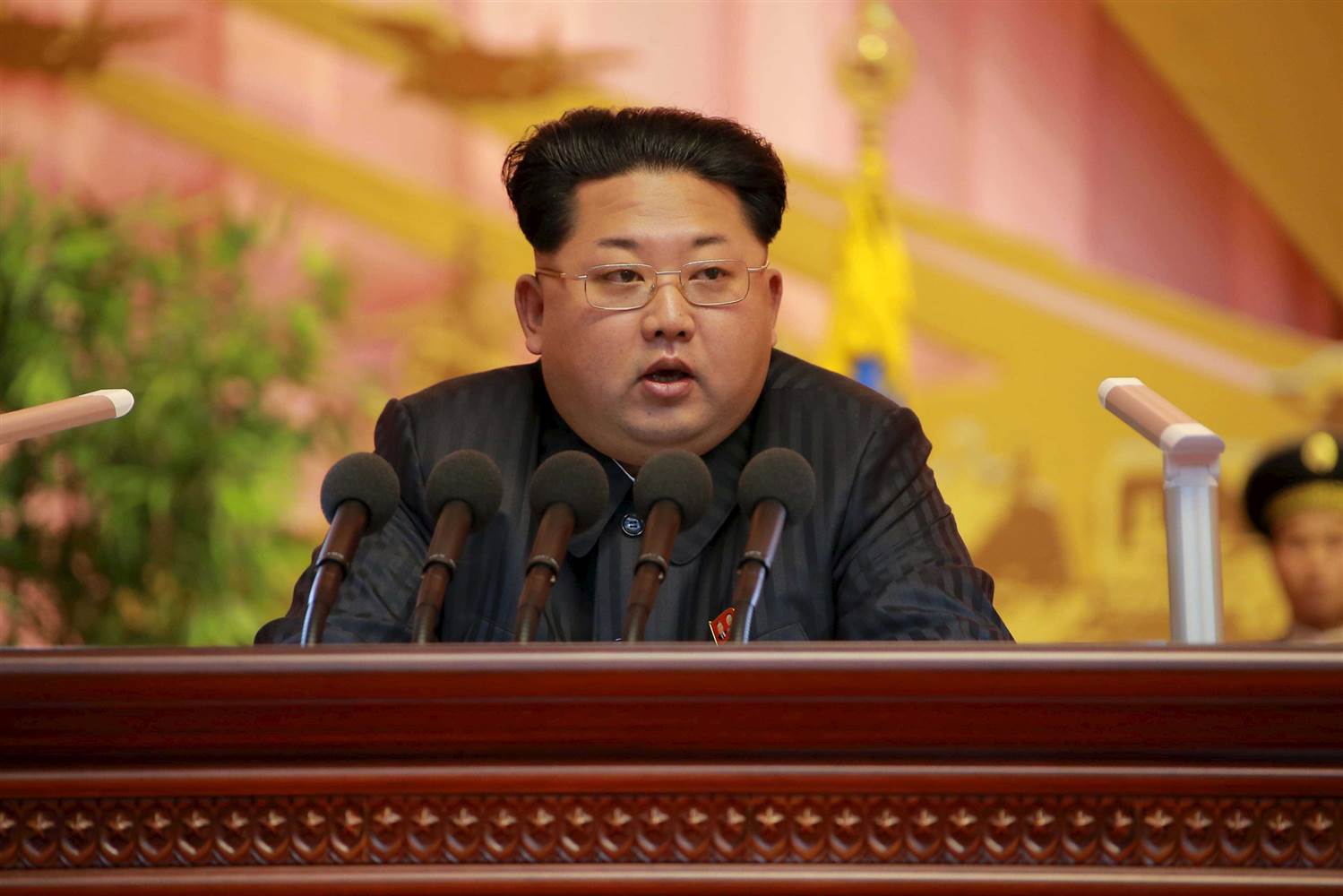North Korean leader Kim Jong-Un says his scientists have successfully miniaturized thermo-nuclear warheads to place on a ballistic missile and create a “true” deterrent, state media said Wednesday.
While Pyongyang has boasted of mastering miniaturization before, this is the first time Kim has so explicitly claimed a breakthrough that experts see as a game-changing step for the North’s nuclear capabilities.
Kim also stressed that the warheads were “thermo-nuclear” devices, echoing the North’s claim that the fourth nuclear test it conducted in January was of a more powerful hydrogen bomb.
“The nuclear warheads have been standardized to be fit for ballistic missiles by miniaturizing them,” Kim noted during a visit with nuclear technicians, the North’s official KCNA news agency said.
“This can be called a true nuclear deterrent,” Kim was quoted as saying.
The North Korean ruling party’s newspaper, Rodong Sinmun, carried a large front-page picture of Kim standing in front of a spherical metal object. The picture carried no caption and the paper did not explicitly claim this was part of the miniaturized warhead in question.
A distinct possibility
“Enough time has passed with North Korea’s nuclear program to make it distinctly possible it has miniaturized a device that can fit on a ballistic missile,” said Melissa Hanham, an expert on North Korea’s WMD program at the Middlebury Institute of International Studies.
“I don’t know that they could target that missile very well, or what it’s range might be, but the claim cannot be dismissed as bluster,” Hanham said.
Kim’s comments came a day after the North’s powerful National Defence Commission threatened pre-emptive nuclear attacks on South Korea and the US mainland, as Seoul and Washington kicked off large-scale joint military exercises.
Kim echoed the threat, warning that North Korea would “never hesitate to make a pre-emptive nuclear strike” in the event of any effort by the US and its allies to undermine its national sovereignty as a nuclear state.
Military tensions have surged on the divided Korean peninsula since the North’s nuclear test in January and a long-range rocket launch last month.
The UN Security Council responded by imposing tough new sanctions last week, which Pyongyang has condemned and labelled as part of a US-led conspiracy to bring down Kim’s regime by force.
“The stronger our nuclear strike capability gets, the more powerful our deterrent to aggression and nuclear war grows,” Kim said.
Experts have been divided on just how far North Korea may have gone with miniaturization, although several US and South Korean intelligence reports and military officials have briefed on its apparent rapid progress.
The issue is key as, while North Korea is known to have a small stockpile of nuclear weapons, its ability to deliver them accurately to a chosen target has been in doubt.
Missile doubts
There are numerous question marks over the North’s ballistic missile capabilities, with many experts believing it is years from developing a working inter-continental ballistic missile (ICBM) that could strike the continental United States.
It is also unclear whether any miniaturized device the North has designed would be robust enough to survive the shock, vibration and temperature change associated with ballistic flight.
Most experts rule out the prospect of North Korea launching any sort of nuclear strike with a largely untested system, saying it would be tantamount to suicide given overwhelming US technical superiority.
“Kim’s remarks should really be seen in the context of the cyclical, bellicose language the North uses on an annual basis, especially in the wake of the UN sanctions,” Hanham said.
“His comments and the photos are making the message very explicit: ‘We have a nuclear weapon and you have to respect us’,” she added.
North Korea’s claim to have successfully tested an H-bomb in January was greeted with skepticism at the time as the estimated yield was seen as far too low for a full-fledged thermo-nuclear device.
However, numerous weapons experts have suggested it may have been a “boosted” fission device, which makes more efficient use of nuclear material and can be made smaller without sacrificing yield.










